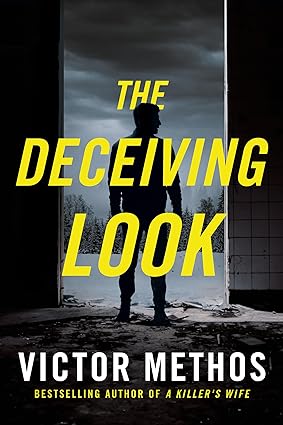
The Science of Mind
The Science of the Mind was originally published in 1926 by the founder of the worldwide Religious Science movement. It was completely revised in 1938 by Ernest Holmes. At the height of what was known as the New Thought Movement, the great thinker, writer and leader Ernest Holmes published his The Science of Mind, which details the tenets of the spiritual movement which he founded—Religious Science.
Holmes was a popular speaker in his time, filling auditoriums with listeners eager to learn his methods for forging a new relationship with the Christian God. He covers the basics in The Science of Mind, along with applicable habits like meditation and prayer, in order to put readers in touch with their God and on a healing path.
BEST DEALS
About the Author
Ernest Holmes (1887 – 1960) was the founder of the worldwide Religious Science Movement. A uniquely gifted scholar with a vast command of the world’s spiritual philosophies, his magnum opus, The Science of Mind, has been in continuous print since 1926. Other inspirational works include Creative Mind, This Thing Called You, The Art of Life, Creative Mind and Success, Love and Law, The Hidden Power of the Bible, and many others.
Read Sample
Part I : The Evolution of Man’s Thought
Instinctive Man
If we traced man’s history back into the dim past we should come to a place where he did not consciously know himself. We should come to a place where Instinctive Man alone existed; for the self-conscious man had not yet evolved.
Nothing can be more apparent than that man, as he now appears, is the result of growth and unfoldment. But in order to unfold, he had to have something from which to unfold, and since he is intelligent, he must have unfolded from an intelligent cause.
Instinctive Man, then, means that Inner Something, or Life, which we do not see but which is, of course, there. We might say that Instinctive Life is God in man, or the idea of God, working through man. But if Instinctive Man is an idea of God, why is he not perfect? The answer is that he is perfect, but that as soon as individuality is evolved he must be left alone to discover himself. Even God could not make a mechanical Individuality. If man is created with the attributes of self-choice and free will, he must be let alone to make the great discovery for himself.
Nature Waits on Man’s Self-Recognition
We note, that from the day when Instinctive Life brought man to the point of self-choice, it let him alone, and from that day Instinctive Life has waited on man’s unfoldment. It is true that during all this time it has carried on the automatic functions of the body and has even silently told man what to do; but it has let him alone in all other ways. It may, and must, hold man as a perfect being, but it also must let him discover this fact for himself. During all of this time, however, Instinctive Life, or God, must be silently waiting for the great discovery to be made and must always be ready to respond to man’s advancement. We note this to be true along the line of man’s progress. For instance, consider the discovery of any of nature’s forces; we know that they must have always existed; but, so far as man is concerned, they exist to him only after he has discovered, and learned how to make use of them. Electricity was a reality in the universe when Moses led the Children of Israel from the land of Egypt, but neither Moses nor any of his followers knew anything about it, and so they did not receive any benefits from its use. This is true of any and all of the natural laws; they always existed, and as soon as understood may be used. In this way, Instinctive Life waits upon man’s discovery of the natural laws and his discovery of himself and his relationship to the great Whole.
If this is so evidently true of all the forces in the natural world we must expect to find the same thing to be true of those inner and finer forces within man. The unfoldment of these inner and finer forces through man is what we call his evolution.
The First Great Discovery
The first great discovery that man made was that he could think. This was the day when he rose from the ground and said, “I AM.” This marked the first great day of personal attainment; and from that day man became an individual and had to make all further progress himself; any compulsory evolution stopped when man became an individual, and from that day he had to work in conscious union with Nature and Her forces; but he did not have to work alone, for Instinctive Life has always been with him and will never depart from him. Instinctive Life desires that man shall express more, and yet more, of its own limitless possibilities.
Man is evolving from an Infinite basis; behind him is the great Unknown but not the great unknowable; for the unknown becomes known through man, and whatever more Instinctive Life is to do for him must be done through him. Nature must work through man in order to work for him. This is true all along the line of life and endeavor.
The first great discovery of man was that he could think, plan and execute. As the result of this discovery he has built up a great civilization and all that goes with it. He has harnessed electricity to his inventions, tied steam and compelled it to do his bidding. He has laid waste forests, built cities, made the desert to bloom, and has thrown the lines of his commerce around the globe; indeed, he has seemed to possess the earth.
The Inner Sense Awakens
But with all of man’s powers he has still felt a vague sense of something more, something greater, something further along; a sort of mystical inner sense of things, an instinctive urge, a blind groping after a greater light. Disregarding all of his apparent power, man has still been unhappy, sick, lonely and afraid. The cities which he built have crumbled into dust, the nations which he fostered have, one by one, fallen into ruin, and history alone remains to tell the tale of most of his endeavors.
In spite of man’s apparent power he has suffered greatly, and death has crowned his life and work with a pall of darkness and uncertainty.
The Great Question “Why”
The great question “Why” has forever been upon his lips. Few indeed have been able to answer this question; and these few have been passed by, unheeded, in the struggle for existence.
Man has struggled along the weary road with a heavy heart and bleeding feet, only to be met by the grave. The lack of a sense of completion has beset his every pathway; and in his blind groping he has held up his hands in speechless anguish, and his broken cries have rent the air with supplications to an apparently unheeding Deity.
Why the suffering, the sorrow, the sin, the sickness and a lifetime of trouble, only to be met at last by the grim and sinister tomb?
Why, why, why? Man has sought the wise only to discover their foolishness; he has sought the learned only to find a lack of wisdom. Why, why, why? His cry has appeared to go forth into an empty nothingness. But hark! from somewhere a vague answer has come, some subtle inner sense of things; some unknown presence has given answer and a still small voice has said to him, “Man, know thyself.” The Instinctive Man has again spoken and told him to search more deeply into his own nature; to look deep within himself for the answer to life. The hour has struck in the evolution of man when he can understand this voice and do its bidding.
The Greatest Discovery of All Time—Mind
Man’s response to this inner Instinctive Voice has caused him to start on the greatest adventure of his career, the discovery of Mind.
Man’s first discovery of his ability to think was set aside as being too evident to take any notice of; he could think, but what of it! Of course, it was a proof that he was, but that was all; he had always been able to think; this simply gave him the ability to know his needs and try to supply them. This he had always done.
The ability to think seemed to be an automatic thing; it came with him and would doubtless die when he died; the brain seemed to be the organ of thought; and, of course, when death stilled the brain it would no longer operate—this was self-evident.
The Brain Does Not Think
But the day came when some wise man said that it is not the brain that thinks at all; for if the brain, of itself, could think, then one could cut it out and it would keep right on thinking. No, the brain of itself could not think; and yet, without a brain man could not think; which simply means that man needs a brain while here, but that the brain, of itself, does not think. The brain does not think and yet man thinks; so behind the brain there must be a thinker. But where is this thinker? We do not see him. Have we a right to say that there is a thinker when no one has ever seen him? Yes; for can we name a single force of nature that we can see? Have we ever seen electricity or any of the other forces of nature? No; and the only evidence we have of their existence is that we see what they do. We have light and motive power, so we have a right to suppose that there is a force which we call electricity. This is true all along the line, for we see effects and not causes.
We Do Not See the Thinker
But to return to the thinker; we do not see him, but the proof of his reality is in the evidence of his works. We know that the legs do not walk; for, if severed from the body, they could not carry any one very far. Cut off the hand and see if it could still hold anything in its grasp! Pluck out the eye and it cannot see; and so it is with all the organs of the body. There is a thinker and doer back of the organism who is using it for a conscious purpose.
The Body Unconscious without the Thinker
This is a great discovery; for it means that the body without the thinker could neither be sick nor suffer; for without the thinker there could be no movement of the body. Why then are we sick? This inquiry will not be answered until every form of disease is swept from the face of the earth and numbered with the things that were once thought necessary. For man has discovered that the body, of itself, has no life nor power to act.
Let us follow the course of man’s thought since he first made this discovery about the body and began to apply his knowledge. He first realized that Instinctive Man built up the body through evolution; and, after having created and evolved a perfect body, left it in man’s keeping to do with as he willed. At first, man was ignorant of this, thinking that the body was self-operating; but as soon as he discovered that such was not the case he began to formulate certain new theories about himself. He discovered that while he could consciously think and decide, something happened to his thoughts after he had thought them. They went somewhere; for soon they would come back as remembrance. Man had now discovered that he could consciously think and that his thought would come back to him again. This led to the conclusion that memory is an active thing, an inner mental action. He said, “Memory is the storehouse of all my conscious thoughts and it is active. My body is not conscious of life, but my thought is conscious of my body; my body is operated upon by my thought; and it must also be operated upon by my memory, since memory is active. But, since memory is only the result of conscious thought, memory, of itself, is an unconscious operation of what was once a conscious thought.”
The Conscious and the Unconscious Thought
Since man always has had the habit of naming things, he named his memory his “unconscious thought,” and his conscious thought he called his “objective mind.” He now came to the conclusion that he had two minds, one conscious and one unconscious, or sub-conscious. The conscious mind being the one that he used all of the time in his self-conscious state and the sub-conscious mind being the storehouse of all his conscious thoughts, as well as the seat of his memory. It follows, that as conscious thought acts, unconscious thought must also operate. This conclusion led to the discovery that the sub-conscious mind is the builder of the body; not that it really made the body in the first place, for Instinctive Man did that; but that the sub-conscious mind keeps the body going and is always acting on the thoughts of the conscious mind. After carefully watching this process, man discovered that he could consciously think and, by so doing, make such an impression on his unconscious thought that it would do what he directed. From these observations he deduced the law of suggestion to be one of action and reaction. Thus he found how habits are formed; that they are conscious ideas fallen into the inner thought and carried out to logical conclusions.
A New Basis of Thought
Therefore, he began to reason: “Instinctive Man within me is perfect and yet I appear to be imperfect. My apparent imperfection must be the result of an imperfect thinking; in reality I am, and always have been, perfect. I will now begin to think differently about myself and see what happens.” And as he began to think from the new basis he found that the body responded and was healed. So he came to this conclusion: “God made me perfect but He also made me an individual, which means that I can do with myself as I will. I cannot really destroy my body but I can make it most uncomfortable. Since God made me and made me perfect, each one of the organs of my body represents a perfect idea.”
Realizing this to be true, he began to think from this basis, and the organs of the body responded. He found that thoughts of peace produced a peaceful condition while thoughts of fear produced a disturbed condition; that confidence made him strong while fear made him weak. In fact, he was able to trace each mental attitude to its physical correspondent. He discovered that, asleep or awake, the inner mind works all the time. He also found that by analyzing his thought he could discover what ailed him. This he called psycho-analysis.












